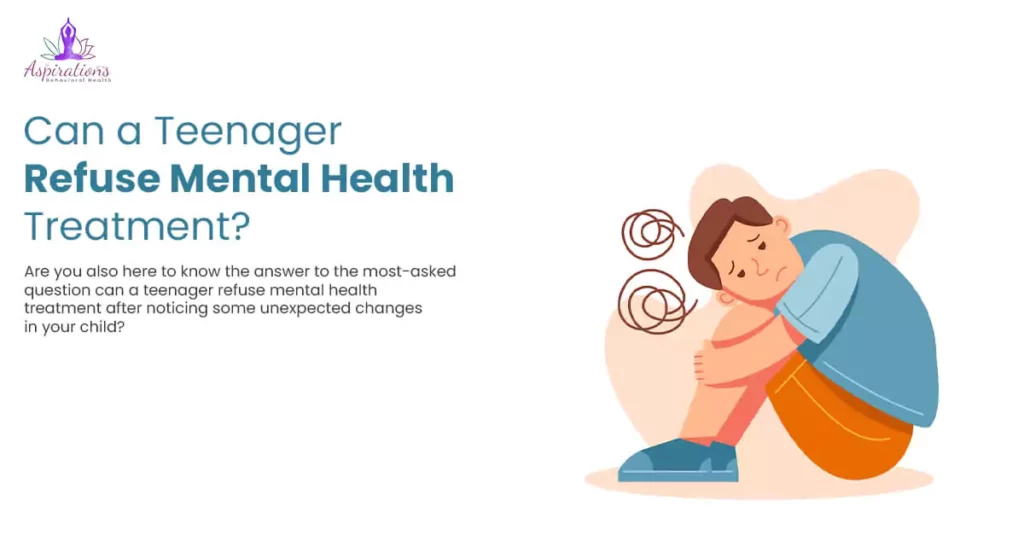Are you also here to know the answer to the most-asked question can a teenager refuse mental health treatment after noticing some unexpected changes in your child? Teens can go through mental disturbance at a particular phase of their life, resulting in severe disorders if not treated on time.
This situation usually confuses parents about whether they should force their teens to undergo treatment. In this guide, you’ll learn all you need to know about a teen’s mental health and its symptoms and treatment.
Teenagers’ Rights to Refuse Mental Health Treatment
Do you know there is an increase in the ratio of suicidal attempts by teens every year because of mental disturbance? Most lack mental health treatment due to shame, fear, lack of support, etc.
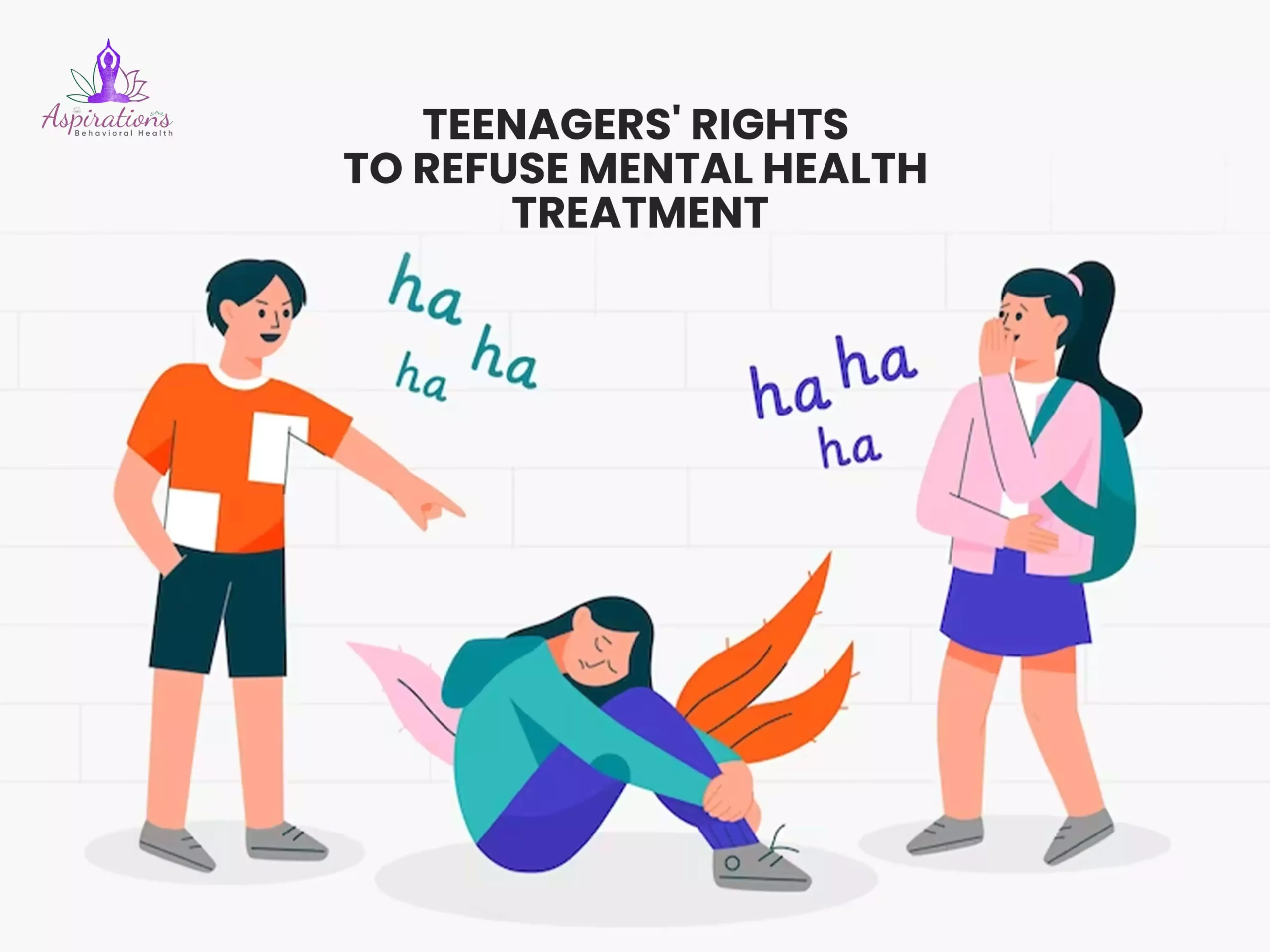
In the era of normalizing mental health treatments, some depressed teenagers refuse help from professionals. It may take some time for your teenager to open up about their mental health struggles. So, it should be their right to refuse help if they are uncomfortable. The age at which a kid can decline psychiatric treatment differs from state to state.
Children under 18 are considered minors in most states, and their parents or guardians have the authority to choose their health care, including mental health care. There are, however, certain exceptions to this rule. For example, if a child poses a risk to himself or others, he may be committed involuntarily to a psychiatric facility.
The youngster would not be able to decline therapy in this scenario. For instance, in California, children under 12 cannot refuse mental health treatment, whereas in Florida, teens under 14 cannot say no to it.
Do I Force My Child To Go To Therapy?
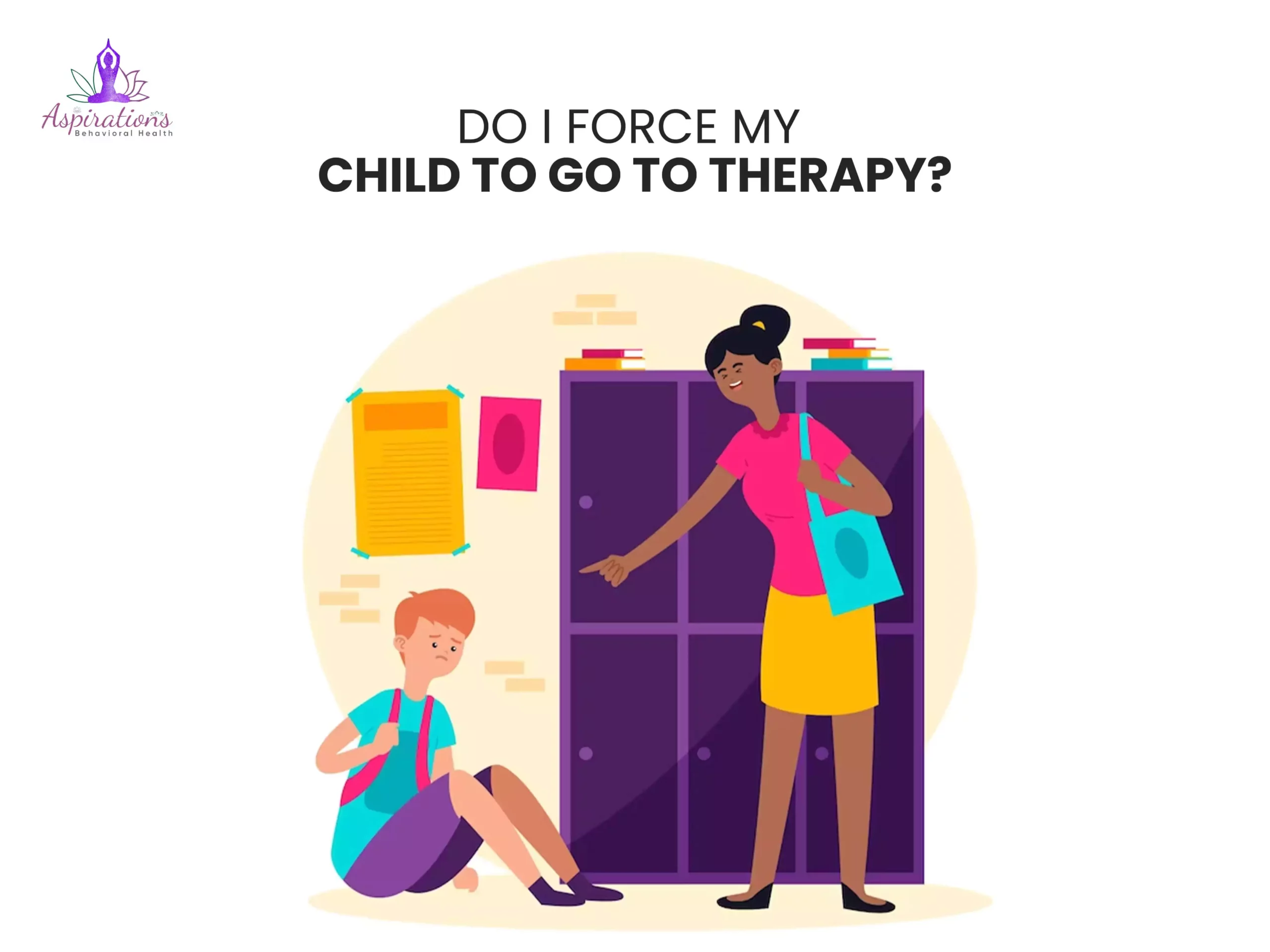
Choosing whether or not to force your child into therapy can be a difficult and delicate decision. Although counseling can assist many people, including children, it is critical to be attentive and consider the unique circumstances.
Forcing your child into treatment is not a good idea. Your child must believe they have decided to attend therapy; otherwise, they will be less receptive to and benefit from the process.
If your child is hesitant to attend therapy, there are alternative ways to encourage them to seek help. Start by expressing your concerns and listening to their reasons for not wanting treatment. Offer your support and provide information about various mental health therapies. Help them find a therapist or mental health expert they feel comfortable with.
Please include your child in decision-making and make them strong enough to make decisions. They may be more open to therapy if they feel involved and have some control over it. Be aware of their ideas and feelings, and balance them with your parental responsibilities to maintain their well-being.
Remember that every scenario is different, and there is no one-size-fits-all answer. As a parent, trust your instincts, seek professional advice, and prioritize your child’s best interests.
As A Parent, What Should I Do If My Teen Is Rejecting Therapy Or Psychiatric Treatment
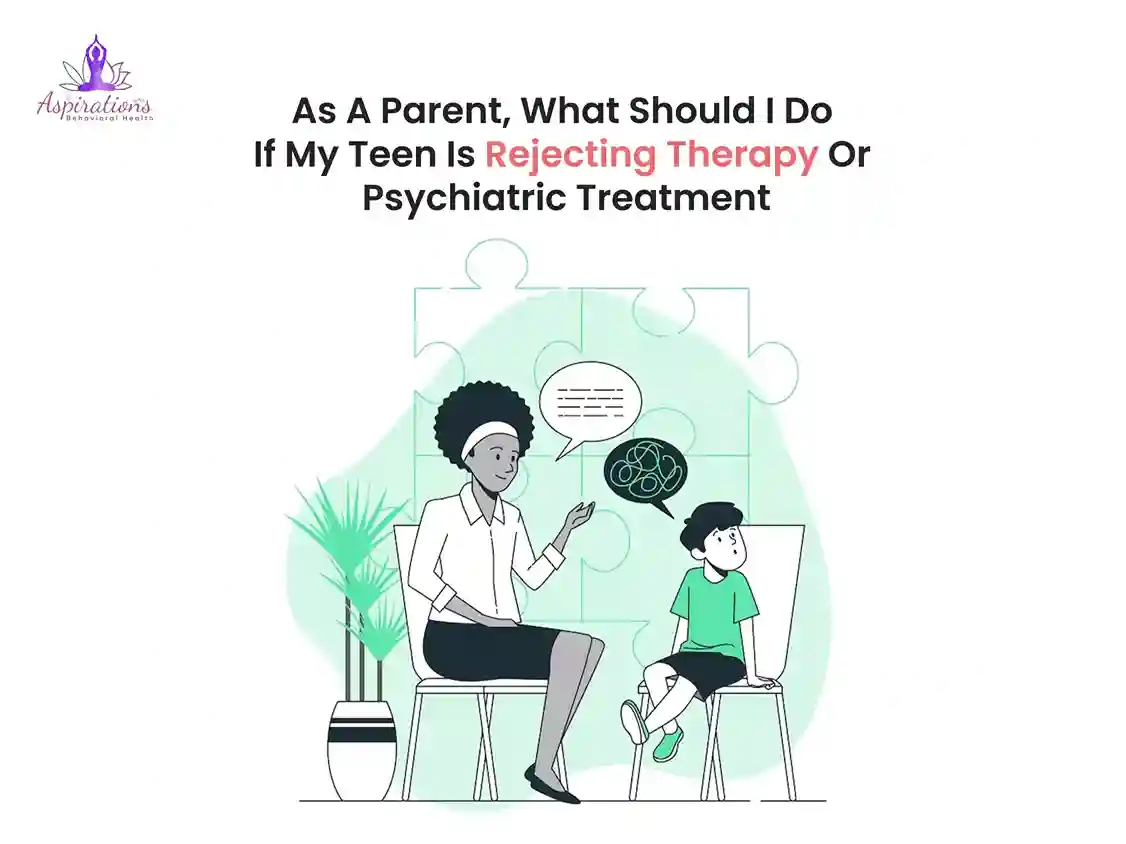
It’s natural for parents to be concerned about their child’s mental health. You want your child’s best care, security, and support. If your child refuses treatment, it can be frustrating and worrying.
However, it is essential to remember that you cannot force your child to get help. Creating an excellent communicating bond will work magic in convincing even a stubborn child. If a youth does not want to participate in treatment, it is best to communicate with them and imply them as crazy.
Please explain why you believe they require treatment and what you expect to accomplish with your assistance. The more you understand mental health, the more you can advocate for your child.
The National Alliance on Mental Illness (NAMI) and the American Academy of Child and Adolescent Psychiatry (AACAP) are two organizations that can assist you in learning more about mental health. Understand their point of view and why they are hesitant to seek treatment.
Make it clear to your child that you are there for them and will assist them in obtaining help. Assist your child in locating a therapist or other mental health practitioner with whom they feel at ease. It is critical that your child feels comfortable talking honestly with their therapist.
After applying all the possible ways to convince your child of a mental health cure, you must contact their doctor if they disagree. Talk to their mental health professional about their stubborn nature or any other behavioral changes they encounter.
Studies have shown that due to frustration, 12 to 26% of the parents refuse to provide them with any help. Your kid’s doctor can provide information about mental health treatment options and assist you in finding the correct therapist or psychiatrist for your child.
How To Engage A Resistant Adolescent In Therapy
Getting a stubborn kid to participate in therapy can be challenging, but it’s crucial to realize that they’re still a person who deserves to be helped. You can experiment with techniques to increase involvement and engagement. Discuss your teen’s reservations regarding counseling with them.
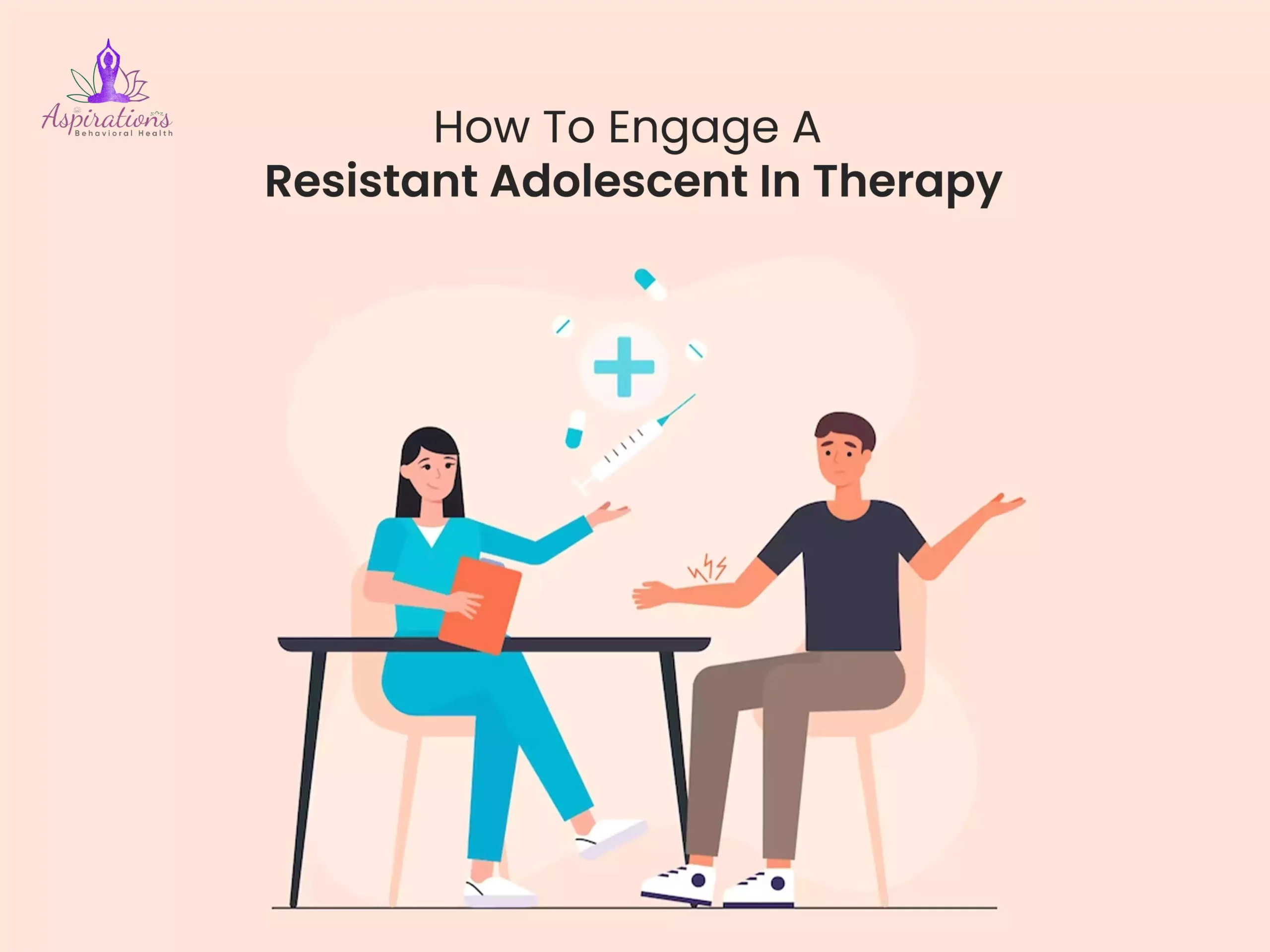
Pay close attention, validate their emotions, and clarify any misunderstandings or anxieties they may have. Explain why treatment is necessary and what advantages it can give. Allow them to communicate their opinions and feelings by being patient and empathetic.
Make it plain to your teen that treatment is a time-consuming process. While change and progress may take time, beneficial results can be obtained with constant work and commitment. Give her a fair chance and encourage her to enter treatment with an open mind.
Encourage your teen to connect with classmates who have had positive therapy experiences or are currently in therapy. Peer support can normalize the process while also offering encouragement and understanding.
Can Adolescent Mental Disorders Be Treated?
A simple answer to the question mentioned above is a definite yes. Adolescents suffering from mental health conditions can be given treatments in many ways. The individual’s needs determine the optimal treatment for a kid with a mental disease.
If you are concerned that your adolescent suffers from mental health issues, you must discuss your worries with them. You can also consult a doctor or a psychologist. Early intervention is critical for getting your teen the care they require.
Can My Parents Force Me To Go To Therapy?
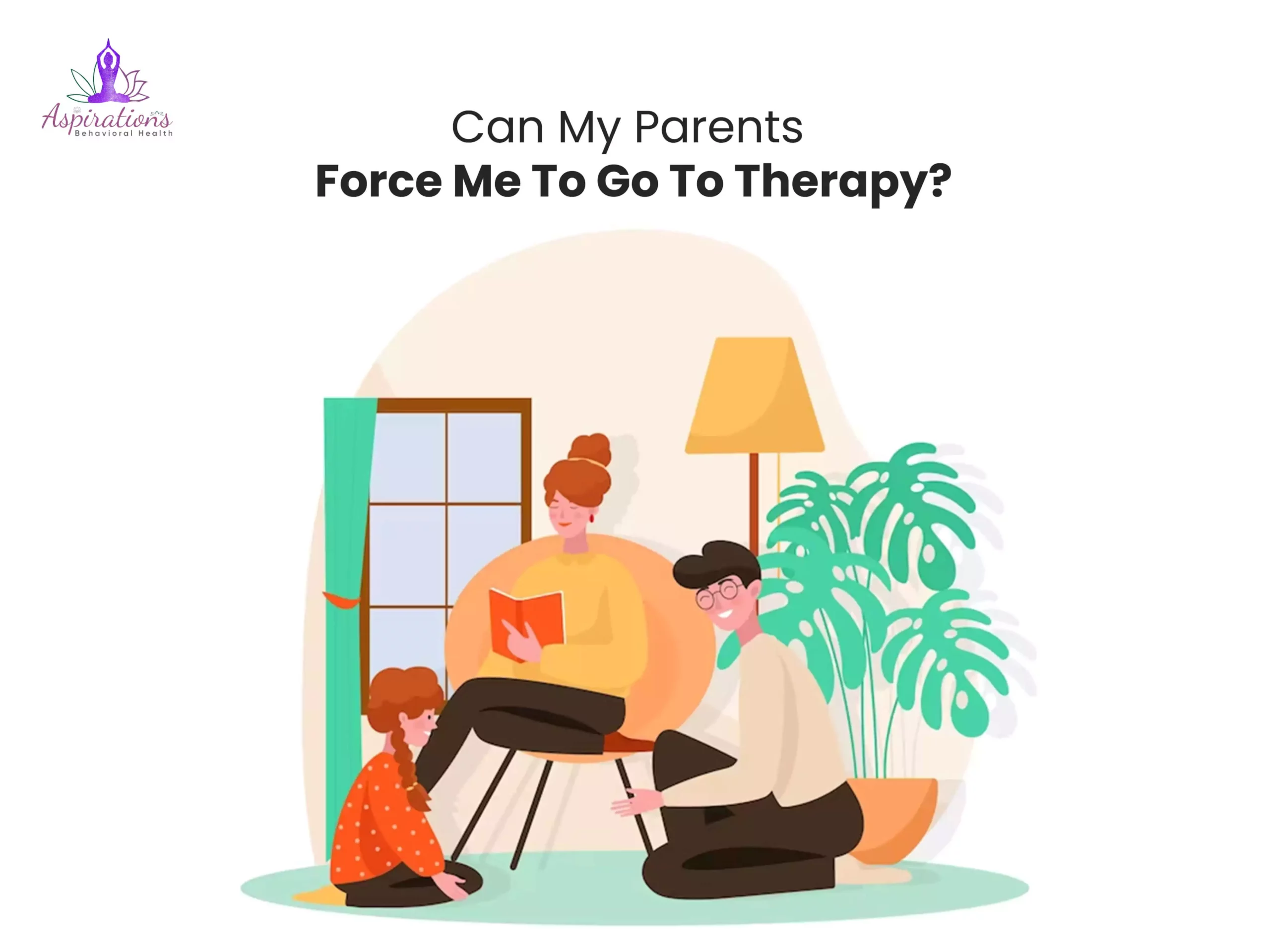
The capacity of parents to compel their children to attend therapy is determined by the rules and regulations of the jurisdiction in which they live. In general, parents have the legal ability and responsibility to make decisions in their minor children’s best interests, including decisions regarding their health care and mental health.
However, it is crucial to emphasize that effective therapy often depends on the client’s willingness and active participation. Forcing someone to go to treatment against their will creates resistance and complicates the therapeutic process. In most cases, a cooperative and collaborative approach is more effective in building a positive therapeutic relationship and attaining meaningful goals.
If you have reservations about coming to therapy, you must communicate openly and honestly with your parents. Please express your opinions, feelings, and concerns while attempting to comprehend their point of view. A trustworthy adult, such as a school counselor or psychologist, can help to facilitate a positive discussion and provide guidance.
When there are significant psychological issues or imminent safety concerns, parents may prioritize their kid’s best interests and make therapy decisions even if the child opposes.
The specifics, however, may differ depending on the legal and cultural setting. As a result, it is critical to research local legislation or gets legal counsel to understand your rights and alternatives.
What Are Common Teen Mental Health Issues?
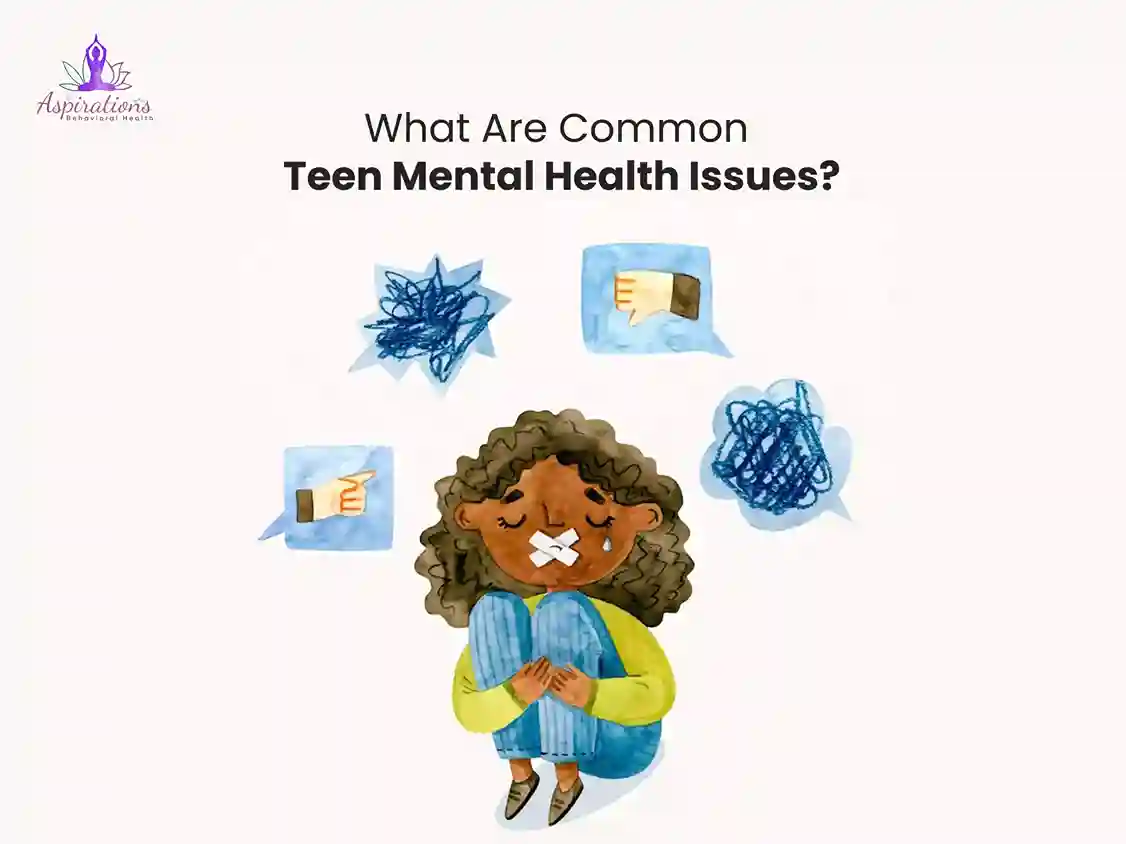
According to NAMI, one in every five individuals faces mental health issues yearly. Awareness of the various mental health concerns affecting young people is critical.
Depression:
Adolescents may suffer prolonged depression, hopelessness, or a loss of interest in previously enjoyed activities. They can also reveal changes in eating, sleep patterns, and activity levels.
Anxiety Disorder:
One of the significant issues teens face is anxiety disorder, including social anxiety, panic attacks, choking, and much more.
Substance Abuse:
Moreover, substance abuse can be a significant issue for youngsters. To cope with stress, peer pressure, or other underlying problems, they may try drugs or alcohol.
Self-Harm:
Some youths may self-harm or contemplate injuring or killing themselves. It is critical to take such warning indications seriously and get help immediately.
Attention Deficit Hyperactivity Disorder (ADHD):
There has been an increase in the cases of Attention deficit hyperactivity disorder, commonly known as ADHD. It is a neurodevelopmental disorder characterized by hyperactivity, inattention, and impulsivity.
Academic Downfall:
At school, it can be difficult for young people to pay attention, follow directions, and maintain control of their behavior.
What Are The Symptoms Of Teen Mental Disorders?
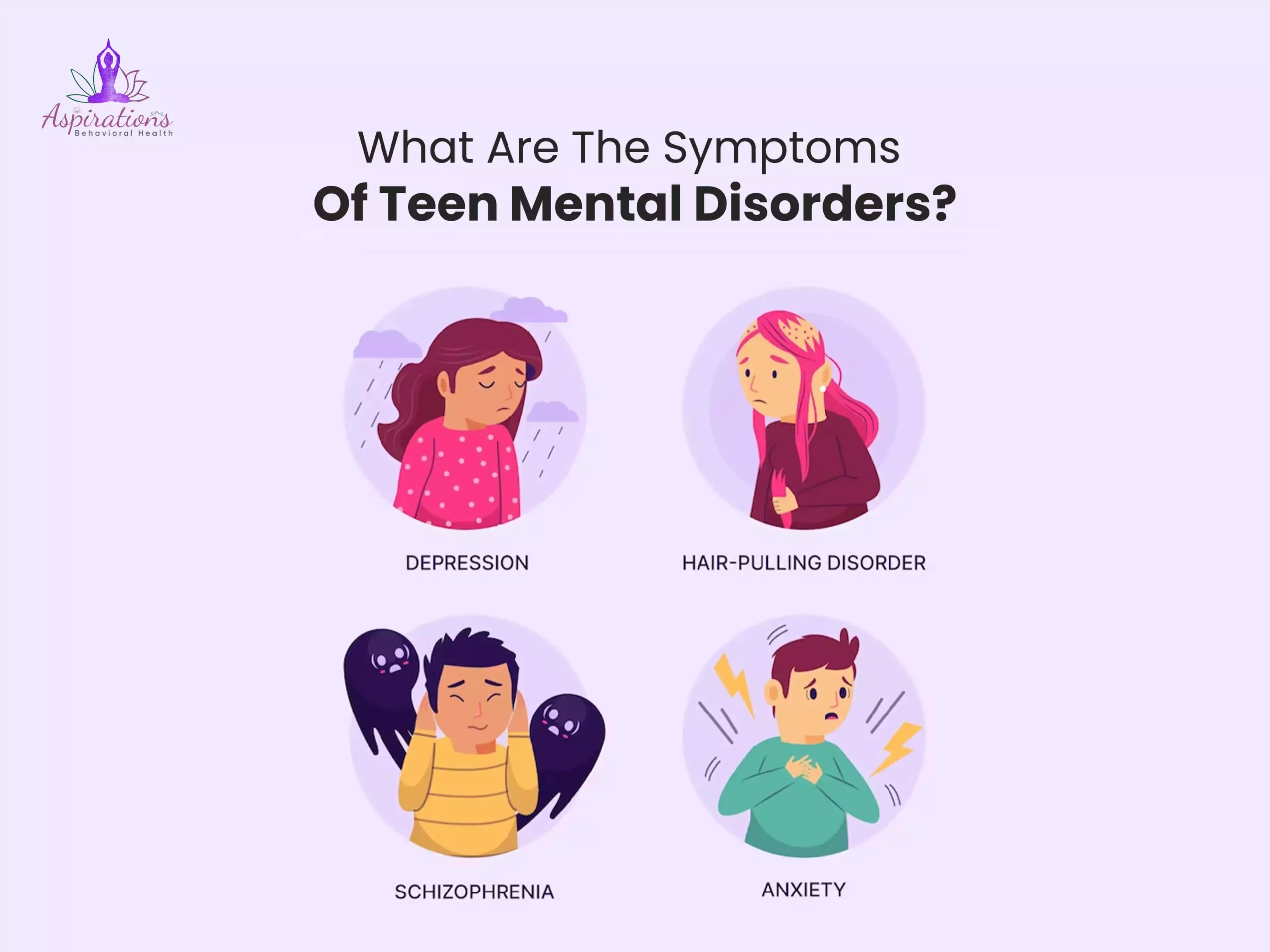
Are you also facing some unknown changes in your lifestyle and especially in your personality? Sometimes you are not aware if you are going into some mental disturbance.
Many of us face a lot of teen mental health disorders in this era of no peace.
The symptoms of teen mental disorders can vary depending on the illness and the type of patient’s condition.
These mental health disorders can include severe anxiety, bipolar disorder, depression, OCD, post-traumatic stress, etc.
Following are some of the common symptoms every individual suffering from mental health faces:
- I felt sad, irritable, anxious, and angry for no reason throughout the day or usual.
- Most of the time, it starts with people isolating themselves from their friends and family and creating to spend more alone time.
- Sometimes, teens engage in risky behaviors that worsen their condition even more.
- They can also experience decreasing grades and difficulty in concentrating on academics.
- You will also notice changes in your physical health, such as difficulty sleeping, loss of appetite, or lower energy levels.
- A few cases can also have thoughts of attempting suicide that ends up harming themselves only.
- The increased anxiety can make you recall bad memories, nightmares, and disturbing events.
Why Do People Refuse Mental Health Treatment?
Recognizing that everyone’s reasons for avoiding mental health care are unique is critical. Discuss your concerns with your doctor or psychiatrist if you are considering refusing treatment.
They can assist you in comprehending your selections and making the perfect conclusion for your health. Many cultures still stigmatize mental illness, and people may fear being judged or discriminated against for seeking assistance.
Personal beliefs may discourage some people from getting mental health help. They may believe, for example, that mental illness is a sign of weakness or may be cured with prayer or other non-medical methods.
Most of the time, people fear the types of treatment used for mental health treatment. Also, some are frightened of the side effects the medicine can cause. Some patients already suffer from other diseases involving certain medications that might collide with mental health treatments.
It is critical to recognize that everyone’s reasons for avoiding mental health care are unique. Discuss your concerns with your doctor or psychiatrist if you are considering refusing treatment.
They can assist you in comprehending your selections and making the perfect conclusion for your health. Many cultures still stigmatize mental illness, and people may fear being judged or discriminated against for seeking assistance.
Conclusion
Mental health issues and their treatment is still stigmatized even in this era of modernization. Due to this stigma, people who are severe a victim of mental disturbance feel shy and uncomfortable about opting for treatment. Parents refusing mental health treatment for a child are also noticed in some cases.
At the end of this debate about whether a teenager can refuse mental health treatment, we suggest not to force yourself if you suffer from one. And if you are a parent or guardian, do not emphasize your decision on your teen as it will only mess up their health even more.


